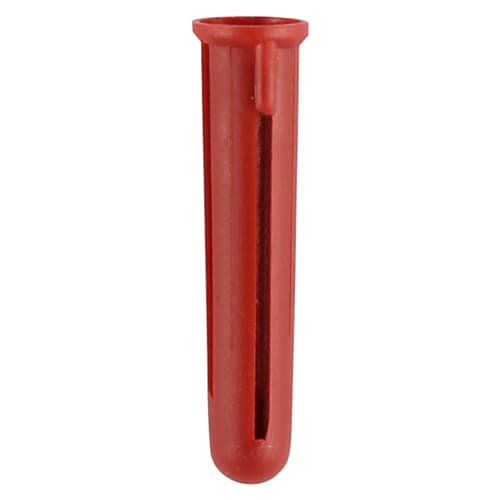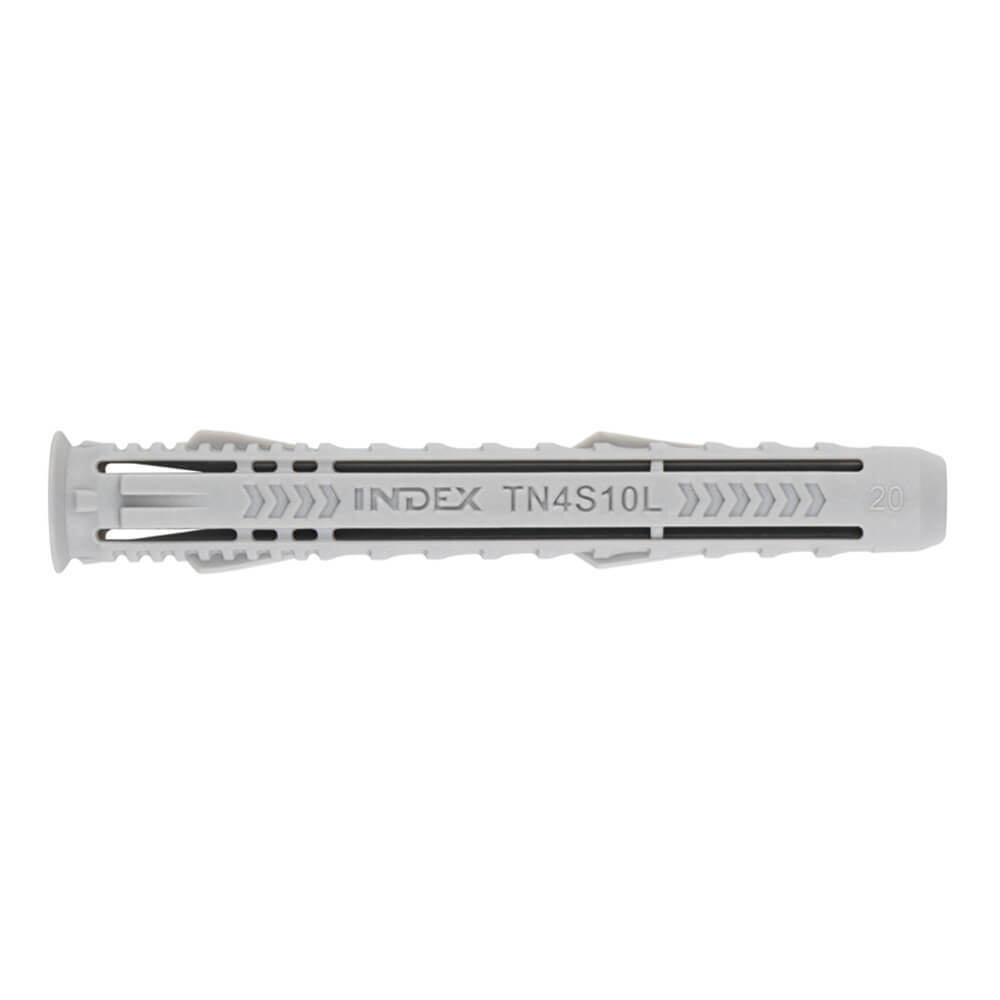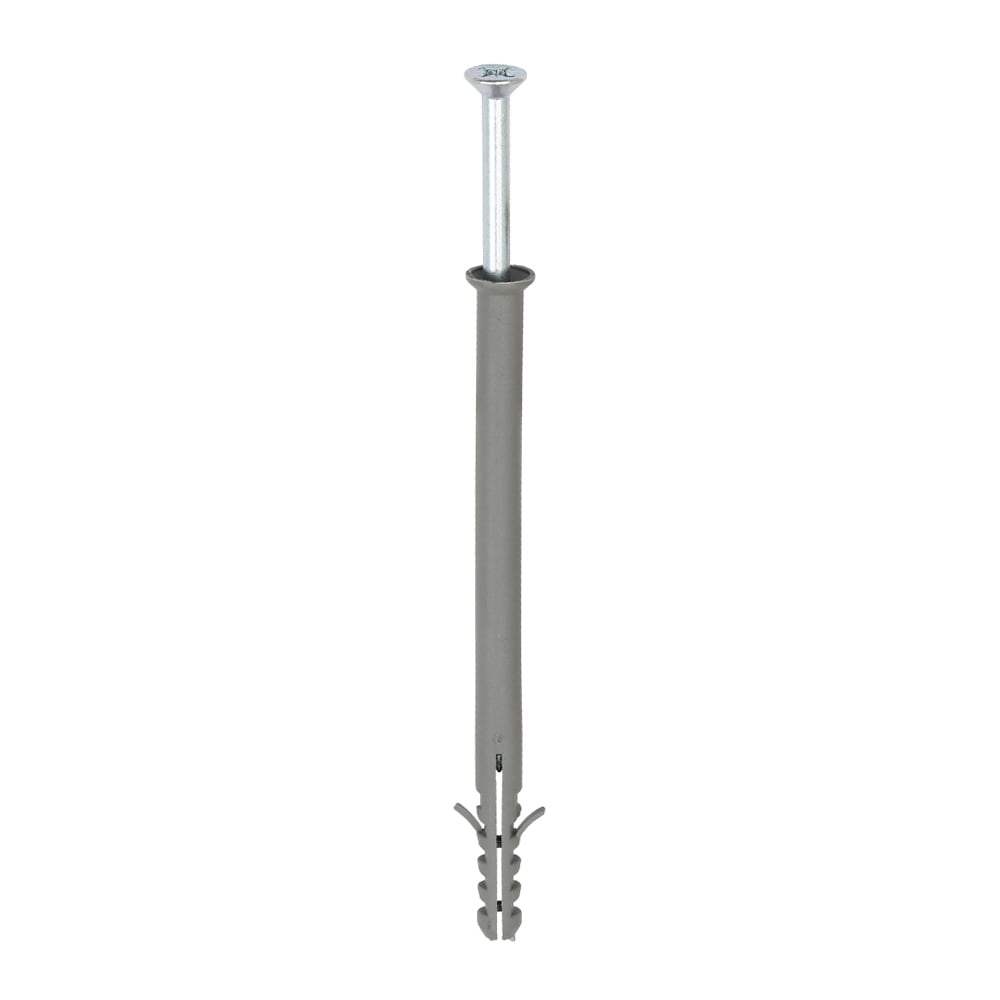Fasteners & Fixings
(31 Products)Fasteners and fixings are crucial components in any construction project, from small DIY tasks to large commercial buildings. These everyday essentials make light work of joining different materials together, providing stability, strength and durability to structures. Browse our extensive range of highest quality fasteners and fixings today.
What Are Fasteners & Fixings?
Fixings and fasteners are a fundamental part of any building project, providing reliable support for the entire structure and ensuring its integrity for years to come.
A typical threaded fastener, like screws and bolts, forms a detachable connection between components so that they can be taken apart or removed as necessary.
All fasteners and fixings are united in their purpose to offer stability, strength, and durability, with most being manufactured to withstand various environmental factors such as wind, rain, and seismic activity. Stainless steel fasteners and those made from high tensile steel are especially common for the sake of durability.
Zinc, chrome, and hot dip galvanising are among the most frequently used coatings/platings.
When picking out a fastener for heavy-duty industrial applications, there are numerous factors to consider; you will want to consider threading, how much pressure it will be subjected to, its rigidity and resilience as well as the number of fasteners you'll need. In fact, this process will apply to most applications when deciding on a suitable fastener.
Let's explore the most popular types of fasteners and fixings below.
Types of Fasteners and Fixings
- Nails: Nails are the most common type of fasteners used in construction. They are made of various materials such as steel, copper, and aluminium, and are used for attaching wood, metal, and other materials. They are available in different sizes and shapes, including common nails, finishing nails, and brads.
- Screws: Screws are another common type of fastener used in construction. They are available in different sizes and shapes, including wood screws, sheet metal screws, and machine screws. Screws provide a strong and secure hold and can be easily removed and replaced if necessary.
- Bolts: Bolts are used to join two or more objects together, providing a strong and secure hold. They are made of steel, brass, and other materials, and are available in different sizes and shapes. Bolts are commonly used in construction for structural applications such as steel framing.
- Anchors: Anchors are used to secure objects to concrete, brick, or other masonry surfaces. They provide a strong and stable hold and are available in various types, including hollow wall anchors, wedge anchors, sleeve anchors, and toggle bolts.
- Rivets: Rivets are used to join two or more materials together permanently. They are made of steel, aluminium, and other materials, and are commonly used in aircraft and automotive industries.
- Washers: A washer is an essential tool in any handyman's arsenal. It typically presents as a thin disc or square plate with a hole at the centre, tasked with distributing the weight of threaded fasteners like bolts and nuts evenly.
- Insulation Pins: Otherwise known as, insulation hangers or insulation stick pins, these pins are self-explanatory; they pin insulation in place.
For further details, please refer to individual category pages.
Uses of Fasteners and Fixings
Fasteners and fixings offer many benefits, one of them being their versatility; they are used in a wide range of applications in the construction industry, including:
- Framing: Fasteners are used to secure wood, steel, and other materials in framing structures such as walls, floors, and roofs.
- Sheathing: Fasteners are used to attach sheathing materials such as plywood and OSB to the framing structure.
- Drywall: Screws are used to attach drywall to the framing structure, providing a smooth and even surface for painting or wallpapering.
- Roofing: Fasteners are used to attach roofing materials such as shingles, tiles, and metal panels to the roofing structure.
- Electrical: Anchors and screws are used to secure electrical boxes, conduits, and other electrical components to walls and ceilings.
Frequently Asked Fixings & Fasteners Questions
How Do I Choose The Right Fastener For My Project?
It's important to consider the type of material you will be fastening, the size and weight of the materials, the environment the fastener will be in, and the amount of stress the fastener will need to withstand.
Consulting with a professional or doing research on the different types of fasteners available can help you choose the right one for your project.
What Is A Self Tapping Screw?
Self-tapping screws are superior to traditional screws in the sense that they boast the ability to tap their own threads when installed on a plastic, wood or metal surface.
What Is The Difference Between A Screw & A Bolt?
While screws and bolts both join materials together, the key difference is that bolts require nuts to secure them in place, whereas screws do not. Bolts are typically used for larger, more heavy-duty applications, while screws are used for lighter-duty applications.
How To Differentiate Between Fine Threads & Coarse Threads?
The threading must be deep set and broad in order to be deemed "Coarse". Fine-threaded fasteners, on the other hand, will have narrower, shallower ridges and a greater number of threads per axial distance.
How Do You Refer To The Ridges On A Screw?
The standard industry term for these ridges is threads.
What Is The Difference Between A Fastener & A Fixing?
A fastener joins two formerly separate components together while fixing is more a method of securing an object in place. It refers to the process as opposed to the actual component.
Is There Such A Thing As Fire Proof Insulation Fixings?
There is indeed. A fire proof insulation fixing is a common feature in properties which value fire performance. There are several screws on the market which are fire-rated.










